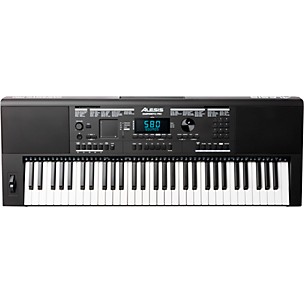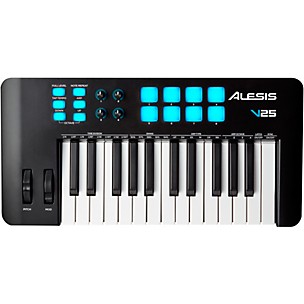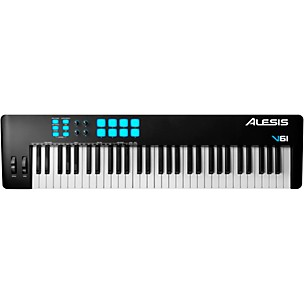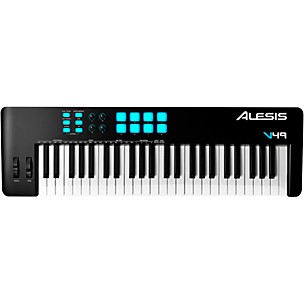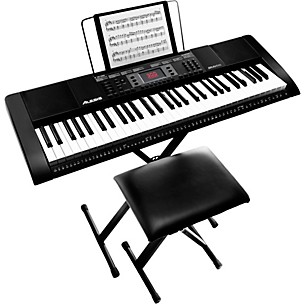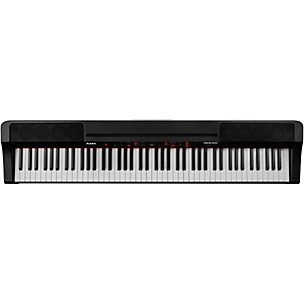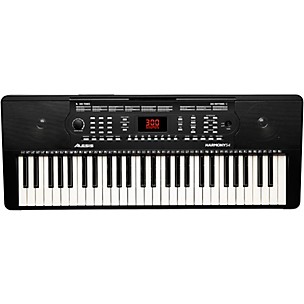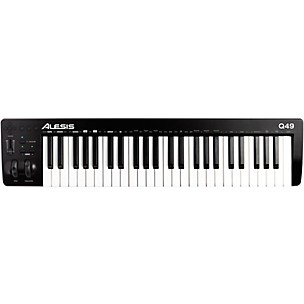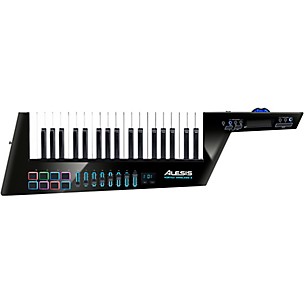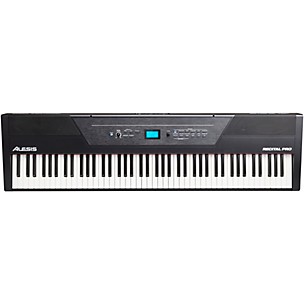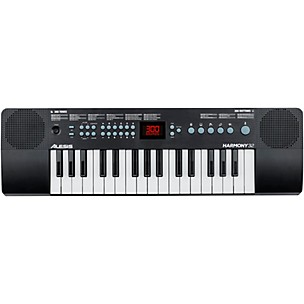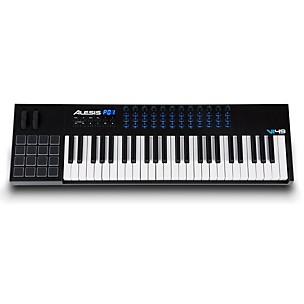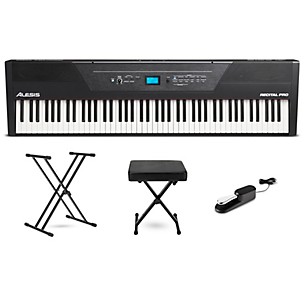Alesis Keyboards & MIDI
About Keyboards & MIDI
Traditionally tickling the ivories meant sitting on a piano bench and playing a large instrument with 88 keys. While acoustic pianos remain popular their digital counterparts have become some of the most widely-used instrument in today's high-tech music community. Not only are they musical instruments they’re compact workstations capable of performing an entire repertoire of digital music tasks.
A standard keyboard is designed with 88 keys. 61-key and 76-key models are available but their range is slightly more limited than full-sized keyboards. Some synthesizers and MIDI controllers have key counts as low as 25. Because they're used mainly in digital sound applications MIDI's and synthesizers don't require such a wide range of keys. A keyboards ability to emulate the sound and feel of an acoustic piano is called touch sensitivity. If a musician strikes the keys with little pressure the keyboard produces a soft quieter sound. Conversely if they strike the keys with force the sound will be louder and harder. Weighed keys function in much the same way. Weighted keys offer the most resistance and the closest match to keys found on a regular piano. Non-weighted and synth keys are one in the same: they move freely and allow for fast fingering.
Led by accomplished brands like Williams Yamaha Casio Kawai Roland Suzuki and Akai keyboards have established themselves as vital instruments for learning and performance and are accompanied by a wide variety of accessories and teaching tools. Piano method books lessons and survival kits are all great resources for beginning keyboard players. If a musician is more advanced they may want to explore synthesizers and MIDI controllers - these keyboards have more options and features than regular digital pianos and open up a whole new world of digital playing possibilities.
